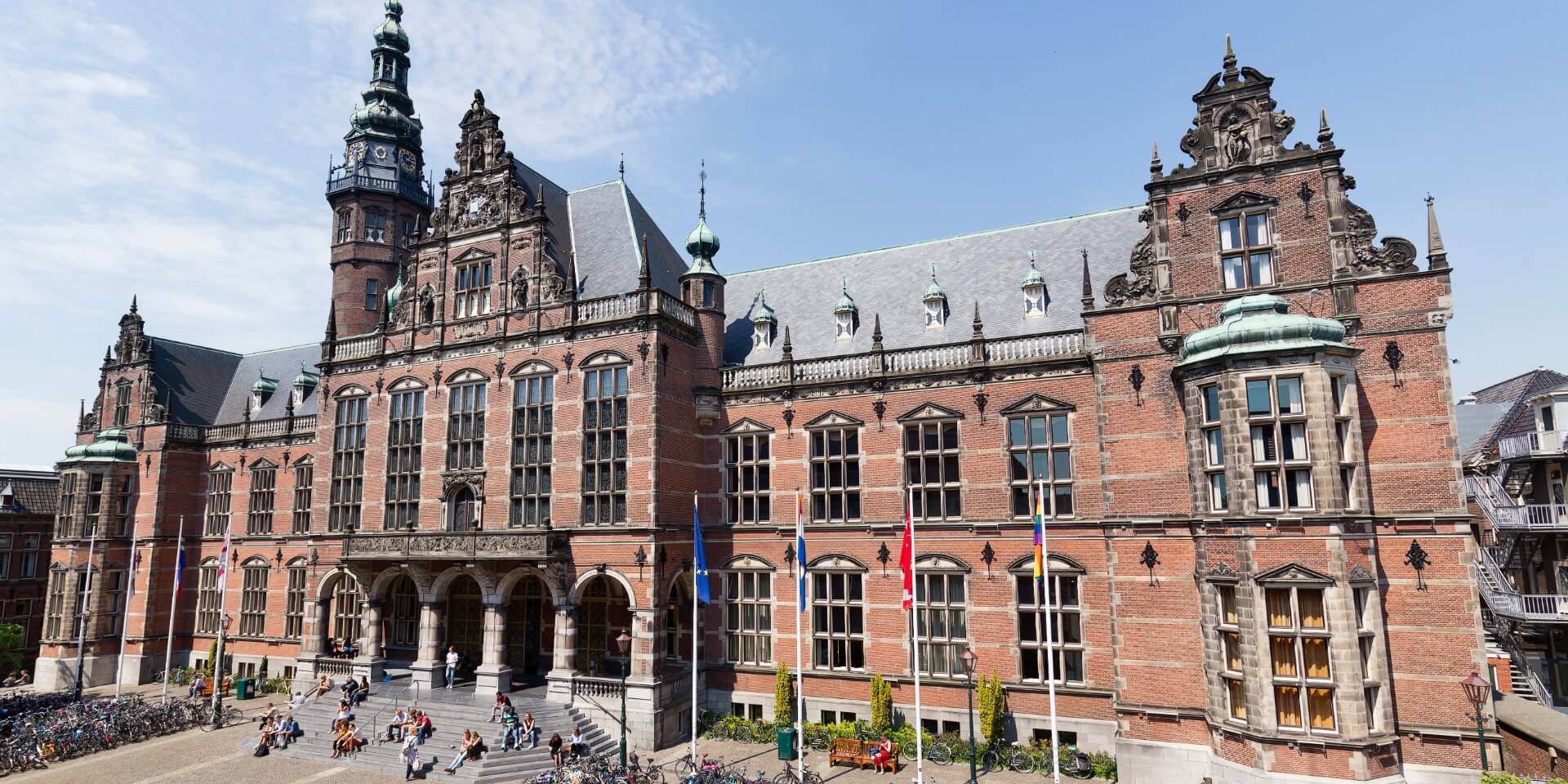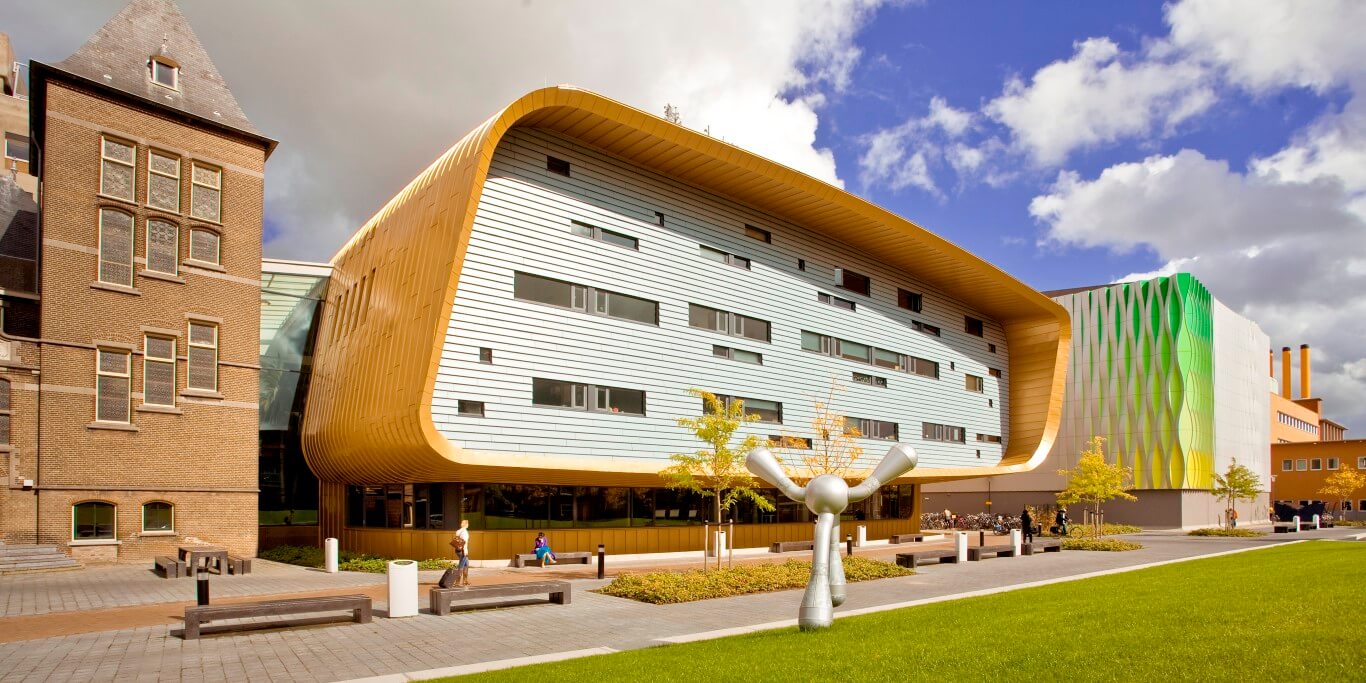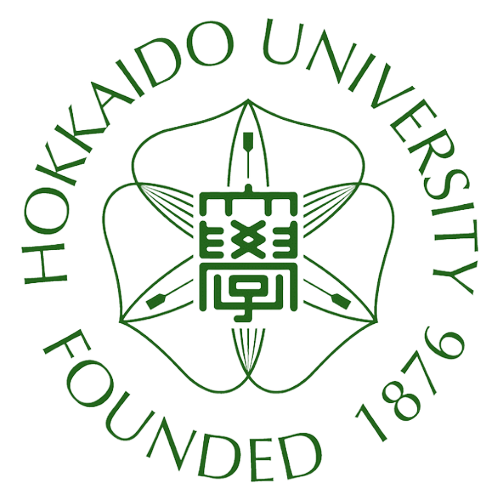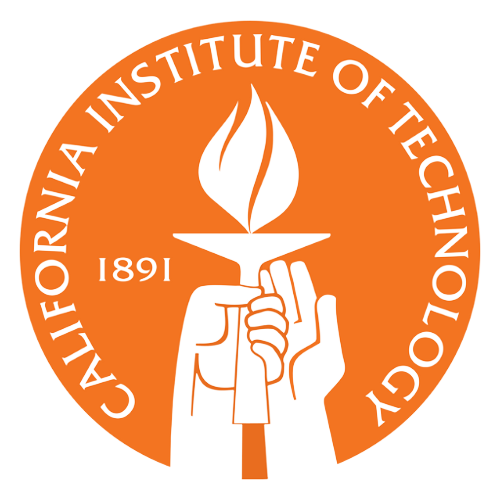Courses (Preview)
The Applied Physics Master's degree programme (totalling 120 ECTS) consists of compulsory and elective courses, followed by an industrial internship and a large, final Master's research project.
The compulsory part of the programme (35 ECTS) comprises advanced physics courses, dealing with state-of-the-art topics in academic and industrial research. The electives (20 ECTS) include one course (5 ECTS) that you choose from a list of Business and Management courses, and three courses (15 ECTS) chosen from a list of courses in applied or theoretical physics, mechanical/electronic engineering, advanced mathematics and chemistry/chemical engineering. The electives, together with the industrial internship (20 ECTS) and the final Master's research project (45 ECTS) offer you the unique opportunity to create a tailor-made programme, based on your own specific interests within Applied Physics.
Through your electives, you can specialize in the specific field in which you want to conduct your Master's research project or take a broader perspective and simply choose courses in the fields that you are interested in. For example, if you want to develop new types of solar cells in your Master's research project, you might choose 'Ultrafast Time-Resolved Spectroscopy' as elective course; if instead you wish to study novel materials for next generation hard disks, you might decide to follow 'Surfaces and Interfaces'. If you want to do your internship within a company that develops soft robots, your choice of electives might include 'Polymer Physics' and 'Mechatronics', while for an internship in a firm producing high-speed single photon counting systems, you might select 'Statistical Methods in Physics'.
Your Master's research project is your own individual project, supervised by one of our high-quality research staff, working at one of the Netherland's most-renowned research institutes, the Zernike Institute for Advanced Materials (ranked in the top 15 of the best materials institutes in the world). Here you can choose from research topics that range from organic solar cells, device nanophysics to materials for data storage, nano- and microelectromechanical systems (NEMS/MEMS), functional coatings and laboratories on a chip.
The Industrial internship is carried out at a research laboratory in industry, within a company or institute in the Netherlands or possibly abroad. Recent hosts include companies like Philips, Photonis, Shell, Thales, research institutes like TNO, the Netherlands Aerospace Centre, Fraunhofer Institutes in Germany or the National Institute of Standards and Technology in Boulder, Colorado and NGOs like Engineers without borders. The industrial internship highlights the practical approach of the Applied Physics programme through the development of a product or a process, while you operate within a professional team.The Applied Physics Master's degree programme (totalling 120 ECTS) consists of compulsory and elective courses, followed by an industrial internship and a large, final Master's research project.
The compulsory part of the programme (35 ECTS) comprises advanced physics courses, dealing with state-of-the-art topics in academic and industrial research. The electives (20 ECTS) include one course (5 ECTS) that you choose from a list of Business and Management courses, and three courses (15 ECTS) chosen from a list of courses in applied or theoretical physics, mechanical/electronic engineering, advanced mathematics and chemistry/chemical engineering. The electives, together with the industrial internship (20 ECTS) and the final Master's research project (45 ECTS) offer you the unique opportunity to create a tailor-made programme, based on your own specific interests within Applied Physics.
Through your electives, you can specialize in the specific field in which you want to conduct your Master's research project or take a broader perspective and simply choose courses in the fields that you are interested in. For example, if you want to develop new types of solar cells in your Master's research project, you might choose 'Ultrafast Time-Resolved Spectroscopy' as elective course; if instead you wish to study novel materials for next generation hard disks, you might decide to follow 'Surfaces and Interfaces'. If you want to do your internship within a company that develops soft robots, your choice of electives might include 'Polymer Physics' and 'Mechatronics', while for an internship in a firm producing high-speed single photon counting systems, you might select 'Statistical Methods in Physics'.
Your Master's research project is your own individual project, supervised by one of our high-quality research staff, working at one of the Netherland's most-renowned research institutes, the Zernike Institute for Advanced Materials (ranked in the top 15 of the best materials institutes in the world). Here you can choose from research topics that range from organic solar cells, device nanophysics to materials for data storage, nano- and microelectromechanical systems (NEMS/MEMS), functional coatings and laboratories on a chip.
The Industrial internship is carried out at a research laboratory in industry, within a company or institute in the Netherlands or possibly abroad. Recent hosts include companies like Philips, Photonis, Shell, Thales, research institutes like TNO, the Netherlands Aerospace Centre, Fraunhofer Institutes in Germany or the National Institute of Standards and Technology in Boulder, Colorado and NGOs like Engineers without borders. The industrial internship highlights the practical approach of the Applied Physics programme through the development of a product or a process, while you operate within a professional team.The Applied Physics Master's degree programme (totalling 120 ECTS) consists of compulsory and elective courses, followed by an industrial internship and a large, final Master's research project.
The compulsory part of the programme (35 ECTS) comprises advanced physics courses, dealing with state-of-the-art topics in academic and industrial research. The electives (20 ECTS) include one course (5 ECTS) that you choose from a list of Business and Management courses, and three courses (15 ECTS) chosen from a list of courses in applied or theoretical physics, mechanical/electronic engineering, advanced mathematics and chemistry/chemical engineering. The electives, together with the industrial internship (20 ECTS) and the final Master's research project (45 ECTS) offer you the unique opportunity to create a tailor-made programme, based on your own specific interests within Applied Physics.
Through your electives, you can specialize in the specific field in which you want to conduct your Master's research project or take a broader perspective and simply choose courses in the fields that you are interested in. For example, if you want to develop new types of solar cells in your Master's research project, you might choose 'Ultrafast Time-Resolved Spectroscopy' as elective course; if instead you wish to study novel materials for next generation hard disks, you might decide to follow 'Surfaces and Interfaces'. If you want to do your internship within a company that develops soft robots, your choice of electives might include 'Polymer Physics' and 'Mechatronics', while for an internship in a firm producing high-speed single photon counting systems, you might select 'Statistical Methods in Physics'.
Your Master's research project is your own individual project, supervised by one of our high-quality research staff, working at one of the Netherland's most-renowned research institutes, the Zernike Institute for Advanced Materials (ranked in the top 15 of the best materials institutes in the world). Here you can choose from research topics that range from organic solar cells, device nanophysics to materials for data storage, nano- and microelectromechanical systems (NEMS/MEMS), functional coatings and laboratories on a chip.
The Industrial internship is carried out at a research laboratory in industry, within a company or institute in the Netherlands or possibly abroad. Recent hosts include companies like Philips, Photonis, Shell, Thales, research institutes like TNO, the Netherlands Aerospace Centre, Fraunhofer Institutes in Germany or the National Institute of Standards and Technology in Boulder, Colorado and NGOs like Engineers without borders. The industrial internship highlights the practical approach of the Applied Physics programme through the development of a product or a process, while you operate within a professional team.The Applied Physics Master's degree programme (totalling 120 ECTS) consists of compulsory and elective courses, followed by an industrial internship and a large, final Master's research project.
The compulsory part of the programme (35 ECTS) comprises advanced physics courses, dealing with state-of-the-art topics in academic and industrial research. The electives (20 ECTS) include one course (5 ECTS) that you choose from a list of Business and Management courses, and three courses (15 ECTS) chosen from a list of courses in applied or theoretical physics, mechanical/electronic engineering, advanced mathematics and chemistry/chemical engineering. The electives, together with the industrial internship (20 ECTS) and the final Master's research project (45 ECTS) offer you the unique opportunity to create a tailor-made programme, based on your own specific interests within Applied Physics.
Through your electives, you can specialize in the specific field in which you want to conduct your Master's research project or take a broader perspective and simply choose courses in the fields that you are interested in. For example, if you want to develop new types of solar cells in your Master's research project, you might choose 'Ultrafast Time-Resolved Spectroscopy' as elective course; if instead you wish to study novel materials for next generation hard disks, you might decide to follow 'Surfaces and Interfaces'. If you want to do your internship within a company that develops soft robots, your choice of electives might include 'Polymer Physics' and 'Mechatronics', while for an internship in a firm producing high-speed single photon counting systems, you might select 'Statistical Methods in Physics'.
Your Master's research project is your own individual project, supervised by one of our high-quality research staff, working at one of the Netherland's most-renowned research institutes, the Zernike Institute for Advanced Materials (ranked in the top 15 of the best materials institutes in the world). Here you can choose from research topics that range from organic solar cells, device nanophysics to materials for data storage, nano- and microelectromechanical systems (NEMS/MEMS), functional coatings and laboratories on a chip.
The Industrial internship is carried out at a research laboratory in industry, within a company or institute in the Netherlands or possibly abroad. Recent hosts include companies like Philips, Photonis, Shell, Thales, research institutes like TNO, the Netherlands Aerospace Centre, Fraunhofer Institutes in Germany or the National Institute of Standards and Technology in Boulder, Colorado and NGOs like Engineers without borders. The industrial internship highlights the practical approach of the Applied Physics programme through the development of a product or a process, while you operate within a professional team.The Applied Physics Master's degree programme (totalling 120 ECTS) consists of compulsory and elective courses, followed by an industrial internship and a large, final Master's research project.
The compulsory part of the programme (35 ECTS) comprises advanced physics courses, dealing with state-of-the-art topics in academic and industrial research. The electives (20 ECTS) include one course (5 ECTS) that you choose from a list of Business and Management courses, and three courses (15 ECTS) chosen from a list of courses in applied or theoretical physics, mechanical/electronic engineering, advanced mathematics and chemistry/chemical engineering. The electives, together with the industrial internship (20 ECTS) and the final Master's research project (45 ECTS) offer you the unique opportunity to create a tailor-made programme, based on your own specific interests within Applied Physics.
Through your electives, you can specialize in the specific field in which you want to conduct your Master's research project or take a broader perspective and simply choose courses in the fields that you are interested in. For example, if you want to develop new types of solar cells in your Master's research project, you might choose 'Ultrafast Time-Resolved Spectroscopy' as elective course; if instead you wish to study novel materials for next generation hard disks, you might decide to follow 'Surfaces and Interfaces'. If you want to do your internship within a company that develops soft robots, your choice of electives might include 'Polymer Physics' and 'Mechatronics', while for an internship in a firm producing high-speed single photon counting systems, you might select 'Statistical Methods in Physics'.
Your Master's research project is your own individual project, supervised by one of our high-quality research staff, working at one of the Netherland's most-renowned research institutes, the Zernike Institute for Advanced Materials (ranked in the top 15 of the best materials institutes in the world). Here you can choose from research topics that range from organic solar cells, device nanophysics to materials for data storage, nano- and microelectromechanical systems (NEMS/MEMS), functional coatings and laboratories on a chip.
The Industrial internship is carried out at a research laboratory in industry, within a company or institute in the Netherlands or possibly abroad. Recent hosts include companies like Philips, Photonis, Shell, Thales, research institutes like TNO, the Netherlands Aerospace Centre, Fraunhofer Institutes in Germany or the National Institute of Standards and Technology in Boulder, Colorado and NGOs like Engineers without borders. The industrial internship highlights the practical approach of the Applied Physics programme through the development of a product or a process, while you operate within a professional team.The Applied Physics Master's degree programme (totalling 120 ECTS) consists of compulsory and elective courses, followed by an industrial internship and a large, final Master's research project.
The compulsory part of the programme (35 ECTS) comprises advanced physics courses, dealing with state-of-the-art topics in academic and industrial research. The electives (20 ECTS) include one course (5 ECTS) that you choose from a list of Business and Management courses, and three courses (15 ECTS) chosen from a list of courses in applied or theoretical physics, mechanical/electronic engineering, advanced mathematics and chemistry/chemical engineering. The electives, together with the industrial internship (20 ECTS) and the final Master's research project (45 ECTS) offer you the unique opportunity to create a tailor-made programme, based on your own specific interests within Applied Physics.
Through your electives, you can specialize in the specific field in which you want to conduct your Master's research project or take a broader perspective and simply choose courses in the fields that you are interested in. For example, if you want to develop new types of solar cells in your Master's research project, you might choose 'Ultrafast Time-Resolved Spectroscopy' as elective course; if instead you wish to study novel materials for next generation hard disks, you might decide to follow 'Surfaces and Interfaces'. If you want to do your internship within a company that develops soft robots, your choice of electives might include 'Polymer Physics' and 'Mechatronics', while for an internship in a firm producing high-speed single photon counting systems, you might select 'Statistical Methods in Physics'.
Your Master's research project is your own individual project, supervised by one of our high-quality research staff, working at one of the Netherland's most-renowned research institutes, the Zernike Institute for Advanced Materials (ranked in the top 15 of the best materials institutes in the world). Here you can choose from research topics that range from organic solar cells, device nanophysics to materials for data storage, nano- and microelectromechanical systems (NEMS/MEMS), functional coatings and laboratories on a chip.
The Industrial internship is carried out at a research laboratory in industry, within a company or institute in the Netherlands or possibly abroad. Recent hosts include companies like Philips, Photonis, Shell, Thales, research institutes like TNO, the Netherlands Aerospace Centre, Fraunhofer Institutes in Germany or the National Institute of Standards and Technology in Boulder, Colorado and NGOs like Engineers without borders. The industrial internship highlights the practical approach of the Applied Physics programme through the development of a product or a process, while you operate within a professional team.The Applied Physics Master's degree programme (totalling 120 ECTS) consists of compulsory and elective courses, followed by an industrial internship and a large, final Master's research project.
The compulsory part of the programme (35 ECTS) comprises advanced physics courses, dealing with state-of-the-art topics in academic and industrial research. The electives (20 ECTS) include one course (5 ECTS) that you choose from a list of Business and Management courses, and three courses (15 ECTS) chosen from a list of courses in applied or theoretical physics, mechanical/electronic engineering, advanced mathematics and chemistry/chemical engineering. The electives, together with the industrial internship (20 ECTS) and the final Master's research project (45 ECTS) offer you the unique opportunity to create a tailor-made programme, based on your own specific interests within Applied Physics.
Through your electives, you can specialize in the specific field in which you want to conduct your Master's research project or take a broader perspective and simply choose courses in the fields that you are interested in. For example, if you want to develop new types of solar cells in your Master's research project, you might choose 'Ultrafast Time-Resolved Spectroscopy' as elective course; if instead you wish to study novel materials for next generation hard disks, you might decide to follow 'Surfaces and Interfaces'. If you want to do your internship within a company that develops soft robots, your choice of electives might include 'Polymer Physics' and 'Mechatronics', while for an internship in a firm producing high-speed single photon counting systems, you might select 'Statistical Methods in Physics'.
Your Master's research project is your own individual project, supervised by one of our high-quality research staff, working at one of the Netherland's most-renowned research institutes, the Zernike Institute for Advanced Materials (ranked in the top 15 of the best materials institutes in the world). Here you can choose from research topics that range from organic solar cells, device nanophysics to materials for data storage, nano- and microelectromechanical systems (NEMS/MEMS), functional coatings and laboratories on a chip.
The Industrial internship is carried out at a research laboratory in industry, within a company or institute in the Netherlands or possibly abroad. Recent hosts include companies like Philips, Photonis, Shell, Thales, research institutes like TNO, the Netherlands Aerospace Centre, Fraunhofer Institutes in Germany or the National Institute of Standards and Technology in Boulder, Colorado and NGOs like Engineers without borders. The industrial internship highlights the practical approach of the Applied Physics programme through the development of a product or a process, while you operate within a professional team.
Show less











